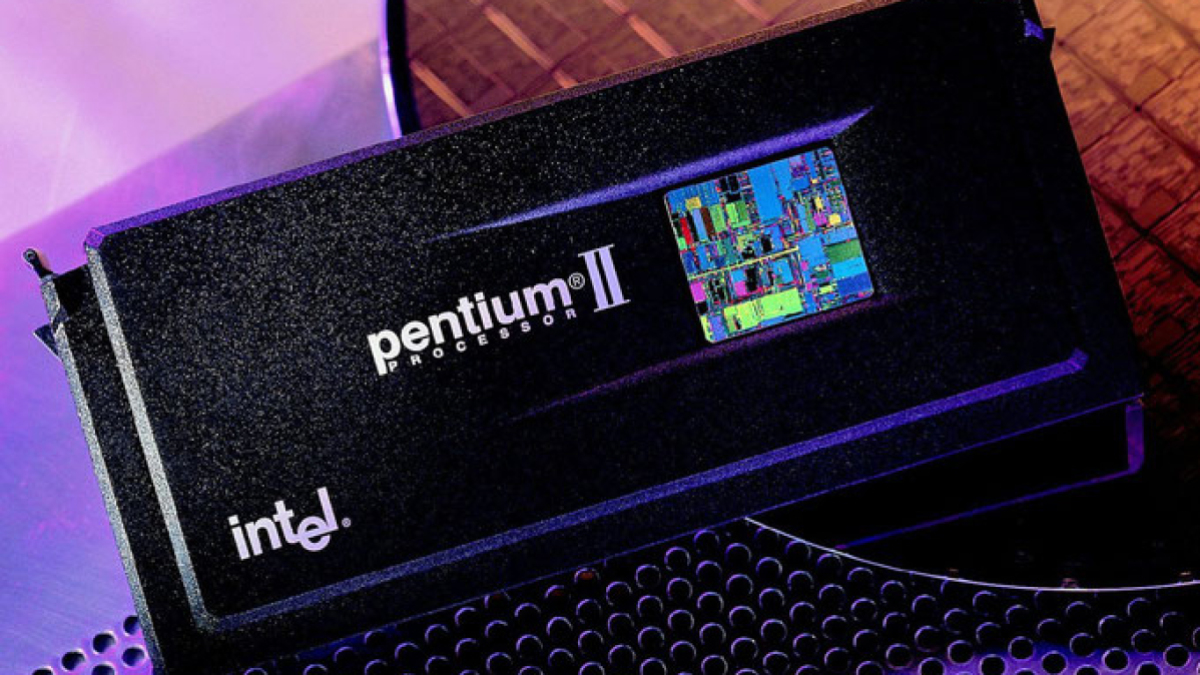- cross-posted to:
- ukraine@sopuli.xyz
- cross-posted to:
- ukraine@sopuli.xyz
This brings them to about mid 90’s tech… They’ll be able to make microwave ovens, tamagotchis, and a counterfeit N64 that runs a game called “Mushroom Plumber 3D”
… And they’re able to make chips good enough for their military.
Russia’s military is in large parts only slightly refurbished soviet gear. For a T72 or even T90, a 90s era chip is still good enough.
Why do you think they dismantled all those washing machines? The microcontrollers in there aren’t high tech at all.
Why do you think they dismantled all those washing machines?
This is a bit further than sane. I think you’ve got the idea from Russian marauders stealing washing machines. They were just marauders.
But yes, and not even Soviet, but relatively new things may not require too advanced chips.
I think a lot of that works on TTL logic and relays frankly. And not even only in Russia. While NATO countries had access to a much easier supply of chips, reliability is a factor too in military tech. Keep it simple, stupid, and all that.
This is a bit further than sane. I think you’ve got the idea from Russian marauders stealing washing machines. They were just marauders.
No – two different washing machine incidents.
There were some documented incidents of Russian soldiers in Ukraine looting washing machines, which was highlighted by the press.
There’s a second issue that Russia was using secondhand chips:
https://www.cbsnews.com/news/russian-military-equipment-computer-chips-refrigerators/
Commerce Secretary Gina Raimondo in a pair of congressional hearings this week told lawmakers that Russia has been using semiconductors from dishwashers and refrigerators for its military equipment.
“Our approach was to deny Russia technology, technology that would cripple their ability to continue a military operation. And that is exactly what we are doing,” Raimondi said on Wednesday.
She said she has heard anecdotes from the Ukrainian prime minister that some of the Russian equipment left behind contains semiconductors from kitchen appliances because the defense industrial base is having a hard time producing more chips on its own and is facing export controls that limit its ability to import the technology from other countries.
It’s also apparently not just Russia that was doing this during the COVID-19 chip shortages:
https://www.tomshardware.com/news/washing-machines-raied-to-obtain-semiconductors
However, ASML CEO Peter Wennink described on an earning’s call how some companies take desperate measures to get their hands on highly sought-after and mature microprocessors.
According to Wennink, several large industrial companies have resorted to ripping chips out of consumer washing machines for industrial use. Typical household washing machines can range from $400 to thousands of dollars each, so that is a relatively expensive way to obtain chips manufactured on a mature process node. However, it’s more likely that these companies are buying used machines or devices earmarked to head to a recycling center. Companies could get the washing machines at a significant discount and still grab the chips in this scenario.
“Technology-wise, market-wise, geography-wise, it’s so widespread that we have significantly underestimated, let’s say, the width of the demand,” said Wennink yesterday during ASML’s Q1 2022 earnings call. “And [I don’t] think it is going to go away.”
Wennink referenced a “very large industrial company, [conglomerate]” when talking about washing machine chip raiding. “Now, you could say, that’s an anecdote. But, to be honest, it happens everywhere,” Wennink continued. “It is — like I said, it is 15, 20, 25-year old semiconductor technology that is now being used everywhere. It’s got — it’s all driven by IoT type applications.”
My guess is that this probably isn’t a case where companies are producing high-volume things. They’re making some very expensive, low-volume things, and they’re bottlenecked by one part that they can’t get.
I found the box art for Mushroom Plumber 64

It’s a me. Tovarich.
Fun fact about tamigotchis, a couple years ago I was looking up if they still made them and I ran across something talking about the tech in modern versions and apparently the newest version of them at the time was running a variant of the MOS6502 microprocessor. This is the same microprocessor that Commodore used a variant of in the Commodore 64.
Are you saying we could have hooked a keyboard and TV to a tamagachi, and used it as a text editor?
I’m not sure why I’d want to do that…but now I want to do that.
That kinda sounds like animal abuse.
Not literally a tamagachi, but if you want to go down the super niche rabbit hole that’ll include interfacing a TV and keyboard to a 6502 processor, there’s a guy named Ben Eater who does a great job covering that stuff. eater.net or search his name on YouTube.
No. The 6502 itself is probably the simplest CPU to be used at scale in home computers: it has only 3 registers, a handful of instructions (you don’t even get multiplication) and is made of around 3,500 transistors (less than half the number in the Z80). All the things that gave the C64, Apple II, BBC Micro, NES and such their recognisable qualities were provided by support chips used alongside the 6502.
6502s were used in a lot of simple electronics after general-purpose computing moved on. They used them in battery-powered pocket chess computers in the late 80s, for example, and I wouldn’t be surprised if cycle computers or microwave ovens contained them as well.
So you’re saying it can’t play doom?
Well there was a game on the C64 called Quake Minus One…
Like is it capable of that sure, could you actually do that with a modern tamagotchi, probably not.
I mean you could technically do it with any microprocessor if you’ve got enough time and patience, though in a lot of cases you’d need to essentially build a whole computer around it.
you’d have to graft on a lot of IO that doesn’t exist but probably. good project to show off on hackaday.
That is some Matrix s…t right there
When I saw this reply, I thought you were talking about my post morphing into Macho Man Randy Savage as a dragon, just to stop a usa public shooting by throwing the shooter into the sun, and engulphing the entire universe in flames…thus killing all of existance.
My Pentium II back in the day ran Diablo, StarCraft and AoE. So way more than a Tamagotchi. Glorious Mother Russia bringing back the good old days…
deleted by creator
AKSHUALLY (not sticking up for Russia here), it’s mostly dependent on how much energy they want to waste. They could make massive dies of whatever if they can power it. Probably with oil. It’ll never be up to par with “modern” tech, but this is one of those things that seems to unlock a modern society.
If they can source materials, and improve on the process to be competitive, it’s another dumb fucking race that humanity has to endure.
You are limited on frequency with older nodes, and while that often isn’t a huge deal, it can mean a lot for things like flight control computers in missiles and crap, forcing the use of expensive analog buffers (if that even fits the situation)
Nope, just the pulse. It’s unfortunate but true. Be a bigger person and stand up for better options.
What are you even saying? This comment doesn’t make any sense.
?
“Dash through the Gulag, collect potatoes, and save the Motherland in Mushroom Plumber 3D!”
YOU MUST CONSTRUCT ADDITIONAL VODKA STILLS
In fairness, that was a pretty solid era. It wasn’t peak tech but I’d be ok going back.
It was probably a mistake for society to advance beyond the era when computers weren’t super portable and phones were just “smartish.” Like that BlackBerry era where you could communicate and get news if you needed it but it was enough of a hassle that you usually just waited until you were at home or the office to get caught up.
Sure but weren’t they raiding washing machines to get chips for their tanks? This is a pretty big step to avoid embargos and pretty significant that they need to do it.
… And combat jet MC’s or brains for missiles\simple suicide drones.
N64 is sufficiently good for a lot of things.
If this is real. Living in Russia I doubt that.
And all the Furbys their little hearts desire!
Love that the article header is a picture of a Pentium II. That’s cold as ice 💀
I think that behind those “oh, it’s 30 years old” people miss one thing:
350nm chips are perfectly alright for many things. Simple controllers, chips inside various appliances, even some of the simpler military tech can absolutely rely on those chips.
It is way more than nothing.
Yeah. Foundries/manufacturing processes last decades. I feel like Reddit/Lemmy is very consumer electronics focused, so they think anything worse than TSMC’s N3 process is literally unusable garbage (slight exaggeration but I’m sure you get my point)
Plus this isn’t the most advanced process they can make. We know for a fact they at least have 90nm lithography machines, they just weren’t made in-house like this one. And it’s undeniable they’re smuggling stuff in from other countries. Like do people really think Russia has no modern GPUs for things like simulations, crunching satellite images, etc? Pull the other one.
This, unfortunately, is certainly a big deal and will be very important to Russia. Hence why they sought to do it in the first place.
Are they a threat to countries like the US, UK, France, etc? Of course not. But Russia seemingly transitioning themselves to a war-based economy should be concerning for people regardless.
Russia has a market full of consumer and professional-grade GPUs from Nvidia and AMD, as well as all other components, available at regular computer stores that never went anywhere. It’s not cut out from technology for sure, not even close. On that front, it’s literally less affected than even China.
But it now has more power to grow independent manufacturing of chips useful for many industries, that now have lower risks of supply chain interruption.
Yeah, those old fabs are still useful. Here’s what Microchip Technology Inc runs:
https://ww1.microchip.com/downloads/en/DeviceDoc/00004075.pdf
See page 6.Their fab in Lawrence, MA only goes down to 1000nm. Their other locations go down to 250 or 110nm. IIRC, some of that is the auto industry refusing to port things off of old chips, but the point is that you can do a lot of useful stuff with horribly outdated fabs.
Yep. Look at it this way, those $100,000+ machining centers that make nearly everything you use and own, are running on basically 486 chips. And they only transitioned from the 386’s because the dies wore out and the chip manufacturers said they weren’t going to remake them. It caused a noticeable amount of angst in manufacturing when the news got out.
Yeah, not to mention some low level engineers that built it only using a hairpin, a hammer, and a lithography machine … (ofc joking, but I bet there are like five nerds that basically made it all happen).
Hairpin and a hammer? HA! THEY were lucky! We had to do lithography with nothing but a water droplet and sunlight! And firmware was burned in as well.
That’s like late 486 early pentium 1 era. You don’t need a supercomputer for everything. The chip situation could be much shittier.
.
With much worse ones*
Plus I would guess that few country could also rebuild the whole manufacturing process in a few years?
Are they telling the truth though?
Remains to be seen. I can see that coming.
Ya but would you like a yield of 100 cpus per slab, or 5.000 ?
So it’s a question of cost too I think, not an expert OFC.
Probably 20 per slab, and an annual yield of about two slabs combined. Of course it will only run for a month before breaking down, due to some vital part going missing.
this shit is ancient, 30 years old node and russians had access to smaller nodes anyway (90nm) https://www.youtube.com/watch?v=N_4R4X7AWtU this is situation from 2022, doubt it got much better, could even get a fair bit worse
So, it’s obviously nothing like an across-the-board replacement, but you can make useful chips that aren’t the latest and greatest.
If you want to do performance-competitive CPUs or competitive signal-processing for radars or whatever, then it won’t work.
But let’s say that you want to make a voltage-regulator chip (something that I know we have put on sanctions lists for Russia). Power supplies need those, so you’re gonna pretty universally want them. That doesn’t need to be particularly high resolution.
Think of all the problems that automakers had due to COVID-19 chip disruption. That was mostly over old, low resolution chips…but they had to have them to ship cars. The article specifically mentions auto manufacture.
Microcontrollers do a lot of work in consumer electronics. Probably have one in your microwave oven. Not very fancy, but it lets you plonk logic in in software.
Russia can probably smuggle in some chips. But that’s expensive (because criminals are going to want a premium for their risk) and risky. Let’s say that you’re trying to buy sanctioned CPUs in Kazakhstan from sketchy parties.
Maybe one of those parties is a (comparatively) upstanding smuggler getting you the real thing and just charging you an arm and a leg.
Or maybe it’s from some enterprising party selling counterfeits, because now the original manufacturer isn’t gonna be working with you to verify that the stuff is authentic, and that knockoff doesn’t have the same testing and has some problems.
Or maybe the person you’ve run into is with the CIA and intending to poison your sanction-busting smuggled supplies of chips with backdoored or sabotaged versions.
Russia will source what it has to from the black market, but the less stuff in their supply chain that comes from the black market, the better-off they are.
The design/manufacturing of a chip is separate from the lithography machine itself
This is the first lithography machine Russia has built. They’d be getting the 90nm ones probably from ASML
they won’t be getting anything from ASML because of sanctions, fabless is also out as TSMC also won’t supply them with chips for the same reason
Which is why they’re trying to make their own now
Here is an alternative Piped link(s):
https://www.piped.video/watch?v=N_4R4X7AWtU
Piped is a privacy-respecting open-source alternative frontend to YouTube.
I’m open-source; check me out at GitHub.
people got to the moon on less.
Uh… They’ve definitely assembled more than just one lithography machine. Probably over 80 years ago. Is it just me or is that a weird headline?
Not that lithography.
Well that was a double take
You had us in the first half not gonna lie
Did they say where this machine is at? It would be cool to see if Ukraine’s recently unleashed US weapons can reach that far.
I like how the article shits on Russia like
In every civilized nation of the world, 14 years olds make these in their bedrooms, but since a bunch of Ivans can’t stop drinking spoiled potato juice, it took Russia 35 years, haha!
















